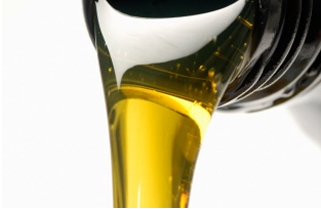 Summer has officially arrived, and while temperatures in some parts of the country have already been on the climb, the weather is sure to become even hotter during the next couple of months, so you should consider taking steps to protect your car.
Summer has officially arrived, and while temperatures in some parts of the country have already been on the climb, the weather is sure to become even hotter during the next couple of months, so you should consider taking steps to protect your car.
Take the heat of summer, combine that with the extra travel associated with vacations, and your vehicle will be under a lot of stress during this time of year. There are simple maintenance steps you can take at home to ensure your vehicle is prepared for the stress of summer driving though. Others maybe require a professional, but every step you take to care for your car is a step in the right direction.
Check out our Ten Ways to Prepare Your Car for Summer below, and check out our Design Your Mats™ and Car Couture™ lines of custom car mats to add some extra style to your vehicle this summer.
Remember, we are currently offering free ground shipping on all orders in celebration of our new Sisal Home Mats.
AC system
The most important system in your car for keeping you comfortable during the summer months, your air conditioning system, needs regular service. A marginally operating system will fail from the extra use required by hot weather. You should consider having the system examined by a qualified technician.
Additionally, newer model vehicles have cabin air filters that clean the air entering the heating and air conditioning system. Check your owner's manual to find the location of your filter and the suggested replacement interval. If it's time, or past time, replace the filter.
Cooling system
The most common source of summer breakdowns is overheating. Ideally, your vehicle's cooling system needs to be flushed and refilled about every 24 months. The level, condition, and concentration of the coolant should be checked periodically. A 50-50 mixture of antifreeze and water is usually recommended, and most coolants you buy at your local auto parts store are already mixed, but be sure to check the label.
It is important to note that you should never remove your radiator cap until the vehicle's engine is completely cooled. If you notice any leaks, have a professional check the condition of all the clamps, hoses, and drive belts that comprise the system.
Engine performance
Check and replace as needed the other filters in your engine. This includes the air, fuel, and PCV filers. In addition to the heat, a lack of frequent rain usually results in dusty conditions, so it is a good idea to have clean filters to begin the summer months. If your vehicle is showing any sort of potential problems -- hard starts, rough idling, stalling, diminished power, etc. -- have those checked out and fixed by a local repair shop ASAP. The stress of summer driving will only worsen any problems.
Engine oil
Oil and oil filter changes are especially important during the summer months. If you are going to be driving more often or further than normal, such as for vacation or while ferrying the kids back and forth to camps, consider having the oil changed more often than normal during the summer. It used to be that drivers were told they needed to change their engine oil weights during the summer to a heavier weight, but with modern oils this change is no longer beneficial. Modern oils are made to work in all seasons, so trust your owner's manual and use the weight suggested by your vehicle manufacturer.
One change you can consider, however, is a switch to synthetic oil. Synthetic motor oil is really just natural oil that has been refined to a much higher degree and includes more complex additives for improving performance in both everyday and extreme conditions. Synthetics can resist heat better than conventionals and therefore will last longer while also extending the life of your motor.
Battery
While we're under the hood, let's turn our attention to your car battery. Batteries can fail any time of year, but while doing seasonal maintenance elsewhere, you might as well take a look at your vehicle's source of electricity. Professional equipment is required to determine if your battery is weak, but there are some routine steps you can take to care for your battery.
Check the terminals and scrape away any corrosion from the posts and cable connections. Clean all surfaces with warm water and a degreaser. Make sure all connections are tight. If battery caps are removable, check the fluid level monthly. Be sure to avoid contact with corrosive deposits and battery acid and to wear eye protection and rubber gloves.
 Tires
Tires
You should have your tires rotated about every 5,000 miles, and especially before any long distance trips. Check tire pressure about once a month in the morning while they're cold. Check your spare tire as well, because it won't do you any good if it is flat, and make sure the jack is in good condition. Make sure your tires have even wear and look for cuts and nicks in the sidewall. An alignment may be be required if you see uneven tread wear or if your vehicle pulls to one side while driving.
Brakes
Your brakes should be inspected as recommended in your manual, or sooner if you notice any vibrations, grabbing, odd noises, or a longer stopping distance. Even minor brake problems should be addressed quickly because those minor problems can become major problems in a hurry. If you change the brake pads yourself, be sure to check the rotors for grooves, as that can be a sign of wear. If you have your brakes serviced, be sure to ask for a rotor inspection.
Wipers
A dirty windshield causes eye fatigue and can pose a safety hazard. We mentioned before that summer weather can lead to more dust in the air, and that dust can collect on your windshield. If your wiper blades haven't been working well, the heat of summer will only cause more damage to the worn rubber. Replace worn blades and go ahead and top off your windshield washer fluid. Speaking of fluid, you might consider looking for one that helps remove bugs -- take a drive at night during the summer and your headlights will lure in hundreds of insects to crash into your windshield.
Lights
While we're talking about night time driving, you should also inspect all your lights and bulbs. Replace any burned out bulbs, and remove any excess dirt and debris from your vehicle lenses. Use a quality lens restorer if you see any signs of yellowing or fogging.
 Prepare for emergencies
Prepare for emergencies
It's a good idea to be prepared for the worst, and keeping an emergency kit in your trunk or cargo area is one way to do that. Make sure your kit has the basics: a first aid kit, flares, and a flashlight. You may also considering storing some water in your vehicle, just in case you need to protect yourself from the heat while addressing a roadside repair or waiting for help.



















